Toyin Falola
People’s journey in life differs for fundamental reasons. First, every individual has specific God-given responsibilities to fulfill in the land of the living, and for that reason, they are imbued with fitting characteristics with which they would navigate the jungle of life where they exist. Second, humans have a body of history of which they are usually unaware but become players in the sustenance or resistance of the same history. For illustration, people come to life from a family with a special history, and ahead of them is a permanent mandate to make their mark in building or destroying such history so that people who would come from them would not face unwarranted complications that can endanger them.
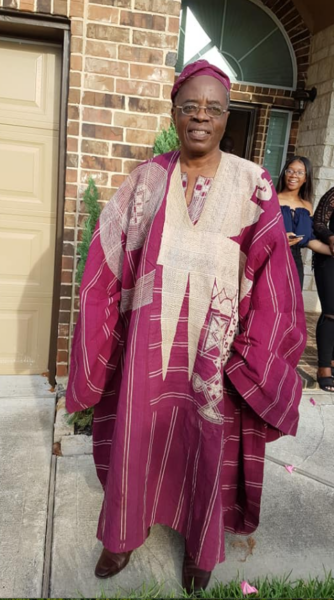
Such is the complexity of the human world in which everyone would shape their own life. Professor Badejo falls within the category of individuals who boldly face the reality of their world and decide henceforth that rather than be mere observers in the unraveling of their existence, and they would become an active determinant that shapes, write, and inscribe their names on the sand of time. The activity of struggling to acquire education during the youthful time is mostly undertaken by courageous individuals, not because it was actually a hard thing to enroll for academic work but because on the shoulders of every schoolgoer is the responsibility to channel their energies to change the tides of their people and become a compass of their collective aspirations. In essence, it was not enough to attend school as everyone would want; you needed to make something critical out of it.
Badejo’s acquisition of political and legal education was the foundation of his intellectual evolution, becoming the basis of his cognitive development while simultaneously exposing him to the rubrics and universal ideals of the human world. The sage became conscious of his responsibility to operationalize his initiatives that would transform society, and that was the turning point of his sagacious disposition to everything.
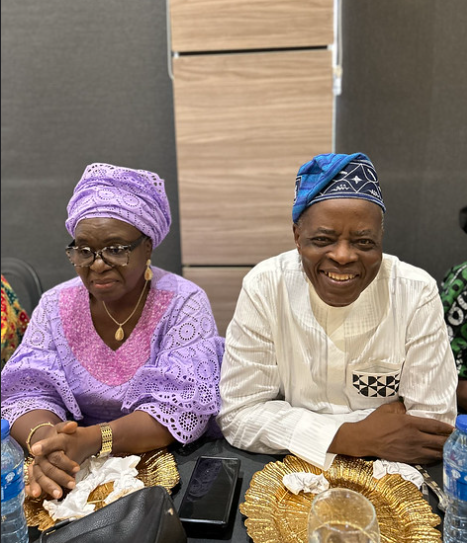
The first indicator of his awareness lies in his decision to become a teacher. It is not an exaggeration to argue that teachers are the shapers of human society, literally because they are given the responsibility to develop the collective cognition of their environment to trigger the minds of their students to become useful and helpful. This professor became a teacher, and his quality intellect during that exercise can be measured by the number of people he has nurtured. Many people today are a testament to his exemplary teaching qualities and how his skillful delivery of educational insights has become a constant source of energy renewal. But this does not tell the whole of his story.
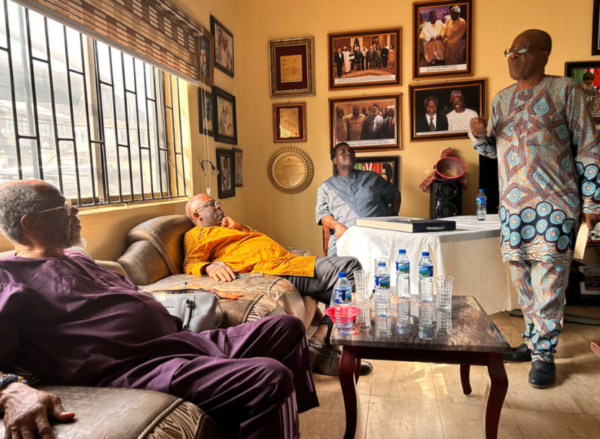
Unbeknownst to many, Badejo started his early work as a productive researcher. He has been able to gather important data that are used in a number of educational departments, and I cannot emphasize enough how this has inspired some level of changes in the human world. No wonder that his intellectual significance stretches further to the conflict management arena. It was during his time as a learner of law that he added this feather to his cap.
When you examine the aggressiveness of his intellectual production, especially one that can be accessed in his writing and publications, one cannot but concede that he remains an outstanding individual in whatever he does. I have the honor to inform the public that no one can overemphasize Badejo’s contributions to decoloniality and decolonization. I need to remind you that this intellectual engagement is a dedication to the course of cognitive remodeling and freedom away from the shackles of ideological contraption that Africans have found themselves in for ages.
Badejo thus understands that the first duty towards the reclamation of lost African values is to re-engineer their cognition, which has become a trans-generational victim of self-defeatist teachings that have altogether weakened their ability to progress in whatever form. In one beautiful piece of work, this talented professor emphasizes how deeply ingrained the contamination of African knowledge content has spread across different domains of their existence. For example, political ideologies that are projected in Africa have no particular co-referentiality with their social and cultural systems, and it is important that when such contradictions occur, it would be very difficult for the attainment of progress. Therefore, it is just a logical decision that such irreconcilable political ideologies be dumped entirely, and where that is impossible, perhaps because people are deeply immersed in it, it should be radically recalibrated to accommodate the things that are peculiar to the people. This is a testament to his extraordinary intelligence.
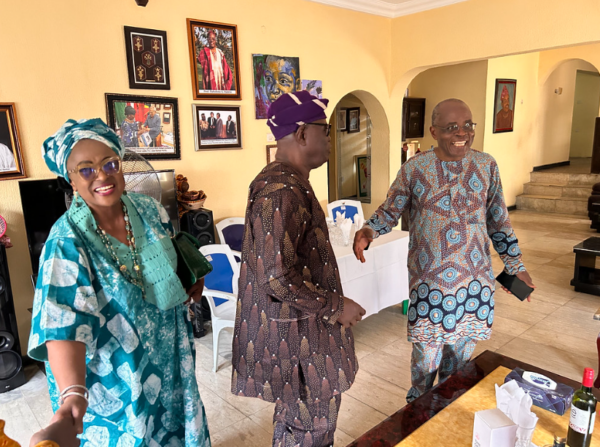
No wonder, in his work, “Situating Democracy…,” Badejo explains the rubrics of the term, revealing that democracy is only “beautiful” when it reflects the nuances of a people. He insists that democratic governments could be dangerous to themselves and the people over which they govern on the occasion that they do not contain and internalize ideals in the local community. If a people collectively decide that this is the form of democratic policy and governance that they wanted, it would be an affront to their human rights to negate their position if they are not self-destructive or immolative. After all, the fundamental definition of democracy is that it comes from the people, and it is meant for them, too. In that case, one cannot but situate democracy within the context of a society so that they can achieve greatness and accomplish their desires as and when due. Although such debates and topics are controversial, one cannot accept that the message in them is golden. I can confidently say this because I am aware that this intellectual has used every available opportunity he grabs to educate people about the affairs of their society and how they can become models and an icon of transformation that the world would look up to. Of course, he has always acknowledged that people’s desire for change and progress is universal, and for that reason, there should be some universal traits to a democratic system. The fact remains, however, that he prioritizes the safety of the people over whom democracy would be used, and this remains a valid argument.
Meanwhile, Badejo has never compromised his callings, serving as the conscience and the consciousness of the masses, for he understands the basic reasons for the perpetual decline of Nigeria’s political and economic value. Badejo has never failed to educate anyone who cares to listen that Nigeria’s democracy’s inability to challenge its contemporaries across the globe is that its custodians are enmeshed in corruption controversies that ordinarily make things difficult to improve in their ordinary national life.
Badejo has educated everyone that corruption thrives in Nigeria because there is a deliberate incarceration of the legal frameworks that would have been the right checks and balances to the system available. He laments the pervasiveness of corruption and how it continually threatens the possibility of genuine transformation in the country.
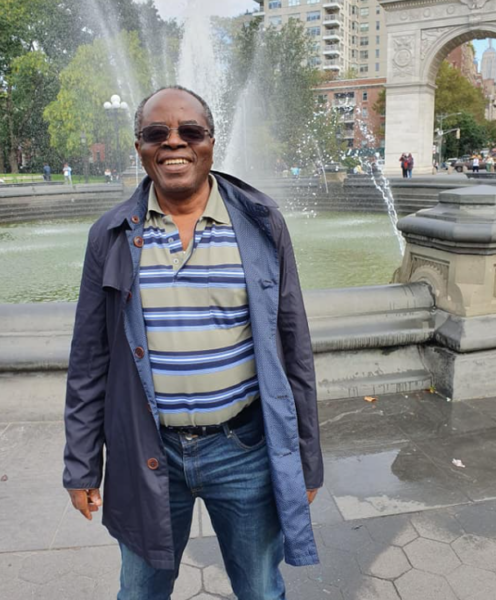
When Badejo preaches through his work, one cannot particularly conclude who his intended audience is, even when he spells it out. The reason for this is that it is always common that he uses his message in ways that would reveal ideas in his determination to capture everything or everyone that is found wanting in a particular allegation. Africa, for example, has been consistently described in very negative terms, especially in relation to its courtship with corruption, and it is no surprise that Badejo addresses the issue in his works.
Despite his dedication to his professional responsibilities to social and political affairs, Professor Badejo has never failed to contribute to human and community development. He has become so instrumental to the growth of the human world that he is recognized for being relentless in helping people regardless of personal cost. In his capacity as a lawyer, he has offered his skills to save people who are wrongly persecuted and used his capacity to bring light to their world. It is particularly enticing that he has offered many of these services pro bono. Apart from offering professional advice and services to people, Badejo has also been very effective in helping to shed light on international issues for people who cannot afford his services and need them.
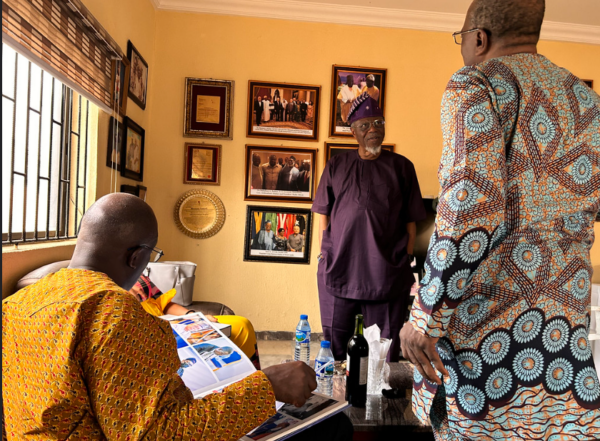
There is hardly any aspect of life to which he has not had his tentacle of influence spread. As a matter of fact, he has seen the avoidance of conflicts in many African countries by being a mediator, using his experience and expertise to convince parties of the need to embrace dialogue and inclusivity. His ideas have been able to foster peace in many places where he gets to. A man of peace deserves peace.
PS: This is a preliminary piece to celebrate Badejo’s forthcoming 70th birthday in March 2025.
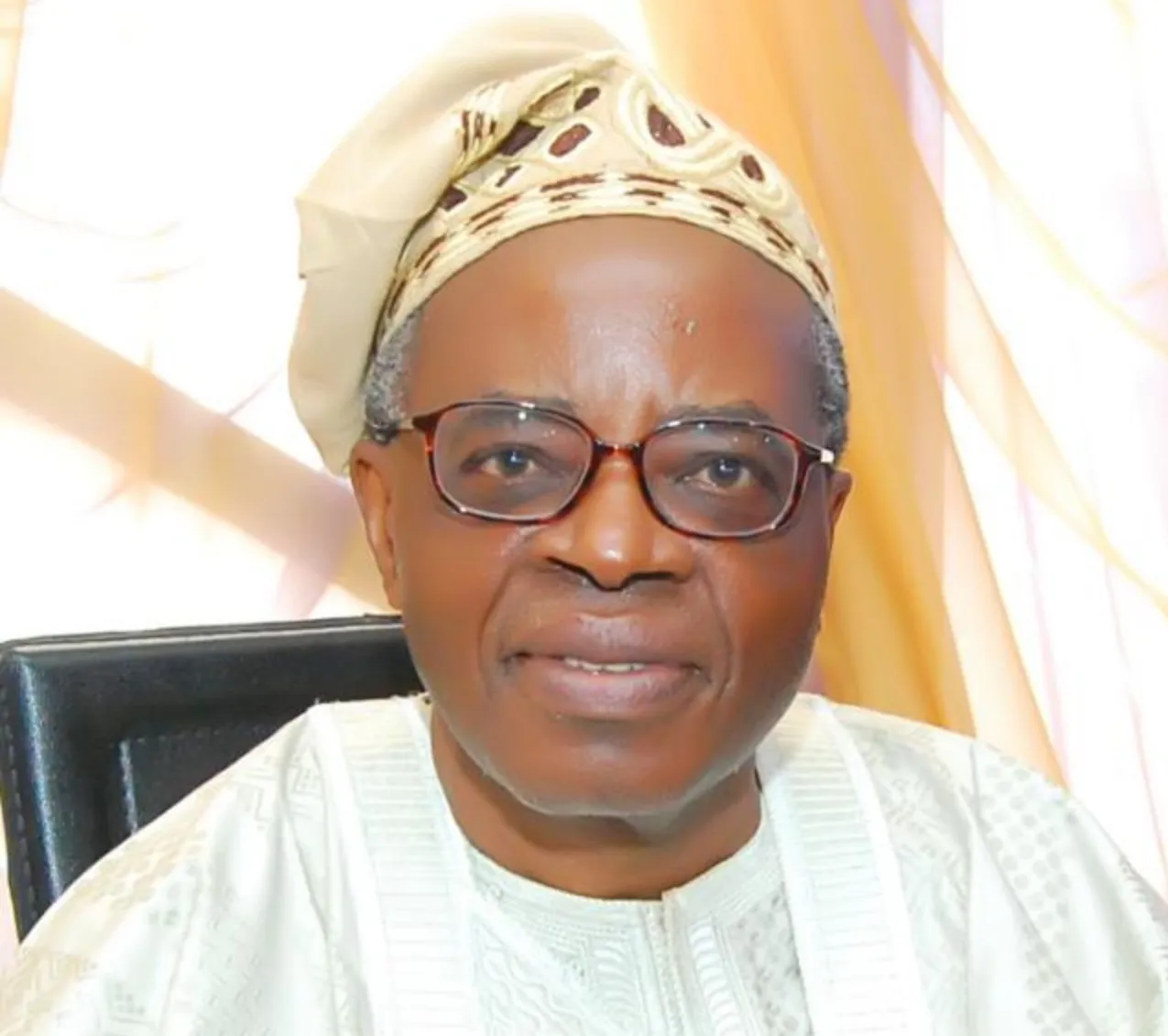
Professor Toyin Falola’s preliminary write up for the 70th birthday of my Teacher, Professor Femi Badejo is a masterpiece. I therefore doff my cap for Professor Emeritus Toyin Falola, himself a Teacher of Teachers and Professor of Professors.
I was a final year student of Mass Communication in the Faculty of Social Sciences, University of Lagos, Akoka in 1986 when providence made it possible for Professor Badejo to teach a compulsory Faculty course titled ” International Relations and Law,” which had been taught for several years by Professor Alaba Ogunsanwo who was appointed Ambassador to a Southern African country by the IBB regime.
Two years after, Professor Badejo got a Unitedd Nations job and that signalled the exodus of academics from Federal and State universities. I lost contact with my beloved Teacher until after the COVID-19 pandemic when he returned to Nigeria.
Since then, Professor Badejo has been writing on national and foreign affairs in notable newspapers and journals. Of particular note is his appointment as a Professor of Political Science and International Relations at Chrisland University, Abeokuta and the classical Inaugural Lecture titled ” Interests ” delivered early this year.
Professor Badejo’s Inaugural remains the most concise, explicit and intellectually stimulating Lecture I have read on the subject in recent years.
The topic remains the shortest and my prophesy is that very soon, the Guinness Book of Records shall invite Professor Badejo for an award.
Let me respectfully congratulate my Teacher for his 70th birthday and wish him many more of such Celebrations.
Good Afternoon Prof. Brilliant piece Sir! Professor Badejo, a quintessential leader and an astute diplomat has touched lives and impacted his community in no small ways. Uncompromisingly straightforward elder and a man of peace.
This piece is penetrating, illuminating and thought-provoking. Prof Femi Badejo is humane and humble yet courageous and bold. His political and legal training has combined to make him a model to be reckoned with in intellectual arena and makes him an organic intellectual of international repute.
Many that fot thr page of light that you open on BADEJO. Necaudr colonial education put our vidion on our oppressors, Nigeria?s clsssrooms dtill rope around myths around LUGARD MARY SLECA and ARISTOTLE etc. The BLACK AFRICAN PHRAOHS who built Ancient Egyptian CIvilisation are only mentioned as wicked persecutos of ISRAELIS
In tjis regard permit me to repest my request for a PAPER from you that yhrows light on Dr
DIALLO.TELLI. He biilt s common shelter for despite gales, earthquakes invented by many foreign invaders.
PLEASE join us in seeking to HONOUR his ĹEGACY in.leadership.
Really an icon of the icons
It’s very apt of life and Femi that I know.
Thanks for bequeathing this to humanity.
An excellent article! I am so proud to have known Femi Badejo from when he was 12 and see his incredible achievements. Nigeria should be very proud of him.
A good reading.
Contributions – academic, community,, political, etc. – appear to me too generalized. Specific examples/cases would confirm the attributes asserted.
I’ve worked with professor Badejo during his tenure as Head of Political Affairs Department in UNAMID. I must say I as well as many others who worked with him were fascinated with his ability to listen and his capabilities to inform. He had a way to report back to his staff that inspired us unlike most bosses on earth. This was in addition to treating everyone with an equal show of love.
Reconnecting with my Teacher in the Political Science department back in those days has been a great experience.
Professor Badejo is a very knowledgeable and outstanding human being it was my pleasure to work with and alongside him.
Prof Badejo did not only Communicate his knowledge, wisdom and skills but also communicated his kindness financially towards humanity, making sure you aren’t behind in your endeavors and it doesn’t matter if he has different view on your pursuit he will still give his Cent.
Happy Birthday in Advance Prof. You are forever loved.
Congratulations to my buddy, friend and colleague- Professor Babafemi Badejo. A quintessential political science aficionado and diplomat.
Emeritus Prof Toyin Falola has done a cryptic but elucidating expose on the man- Femi Badejo whom we continue to be proud of!
Congratulations , Femi as we welcome you to the 7th Floor of septuagenarians in March next year.
Babajide Alo, FAS
Distinguished Professor of Chemistry (Retired)
University of Lagos
A brilliant piece of writing…you’re an ICON sir
Working under Professor’s guidance during my National Youth Service at the Department of Political Science, Chrisland University, one of the most transformative experiences of my journey unfolded. Upon discovering that a corps member with a first-class degree in Political Science was in the registry, Professor immediately intervened, and ensured that I joined the department to serve, learn and grow.
What stands out is professor’s relentless drive to nurture emerging scholars and develop new knowledge. There was no hint of condescension toward upcoming researchers; instead, there was a consistent effort to invest in their growth.
One unforgettable moment was the inaugural Chrisland University Political Science Students’ Seminar, where professor ensured the presentation of my first research paper, ‘Understanding Political Science.’ That experience built confidence and broadened my perspective in ways I could never have imagined.
Even more remarkable was the generous gesture of sharing his inaugural lecture, a profound resource for both learning and inspiration.
The influence of such a mentor is enduring, and the lessons learned in that department will forever remain a cornerstone of my academic and professional journey.
I give kudos to prof femi badejo. We were today at the university of lagos during our undergraduate days. I’m so thrilled that he has become an icon in his field.
Here is wishing you happy 70th birthday in advance
I am grateful for counted me worthy to receive this excellent work. If it is available in print form I would like to have a copy.
It’s great to have met Prof Badejo through one of his friends who is a Retired Ambassador. Prof Badejo has since then looked like a Nigerian who would have been a great delight (if given a right to Governance). Prof Badejo remains in mind a Great Teacher (from all I have read and heard about him). We shall be looking forward to March 2025.
Prof never taught me directly, but I’m sure he taught many of those who taught me. I was privileged to meet him physically during a TV interview where we both were panelists. The humility, depth of knowledge, sense of history and intellectualism were outstanding. I join the world in celebrating Professor Badajo. May his days be long.
Couldn’t agree more. My country, Somalia, and I are beneficiaries of Dr. Badejo professional services.
Somalia had 12 reconciliation conferences that failed before the Arta, Djibouti reconciliation conference that marked the re-birth of Somalia government. I strongly believe that Allah sent Dr. Badejo and Mr. David Stevens to rescue Somalia, without their help that conference would have failed, perhaps Somalia wouldn’t have a government today.
Dr. Badejo, helped me at a time when I needed professional support. I consider him my brother. I don’t have enough words to thank him.